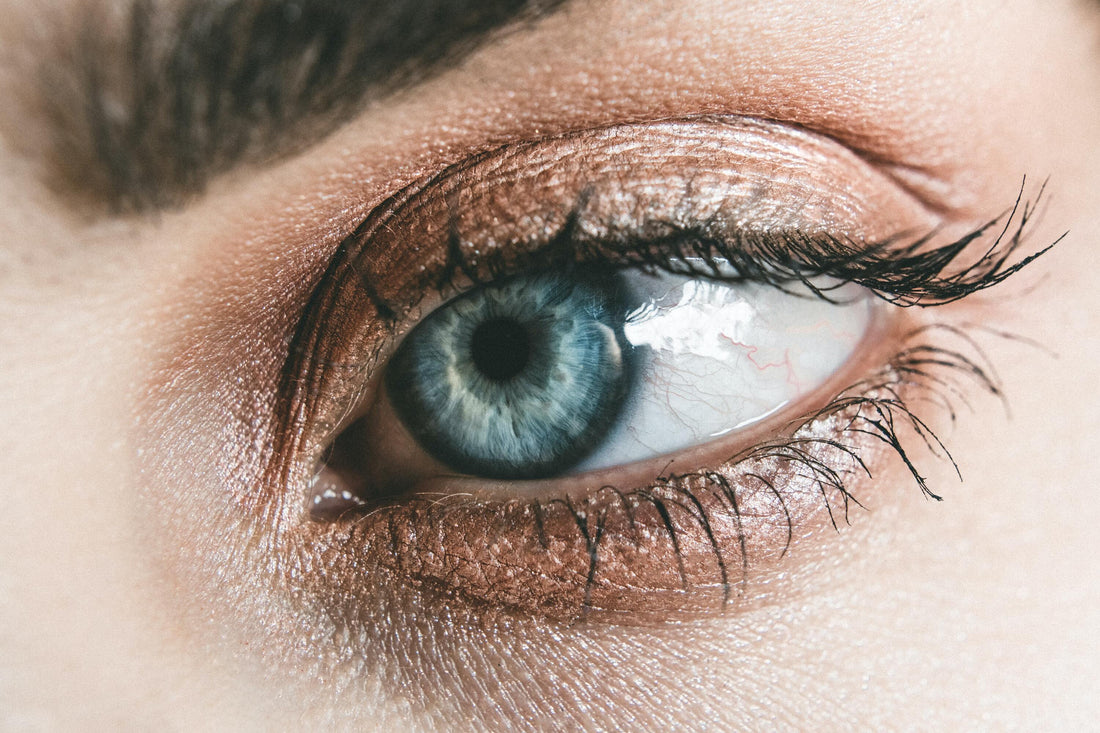Eyes are one of the most crucial organs in our body, and taking care of their health is essential for maintaining a good quality of life. In today's world, where most of our time is spent in front of computer screens, tablets, and smartphones, protecting our vision becomes increasingly important. In this article, we will discuss how we can prioritize eye health in our daily lives and the benefits it brings to our eyes.
Healthy Diet - Healthy Eyes

The first step to ensuring eye health is a proper diet. What we eat not only impacts our overall health but also the health of our eyes. Let's focus on nutrients that support eye health:
-
Vitamin A: Essential for maintaining proper vision, especially in low light conditions. Best sources include carrots, sweet potatoes, spinach, and mango.
-
Lutein and Zeaxanthin: These compounds naturally occur in the eye's retina, helping filter harmful blue light and reducing the risk of cataracts. Find them in leafy vegetables like spinach and kale, as well as in eggs.
-
Omega-3: Found in fish such as salmon, sardines, and mackerel, omega-3 fatty acids help maintain a healthy tear film in the eyes, crucial for preventing dry eye syndrome.
-
Vitamin C: Acts as an antioxidant, supporting a healthy vascular system in the eyes. Citrus fruits, strawberries, and red peppers are rich in this vitamin.
-
Zinc: Plays a significant role in eye health, especially in preventing macular degeneration. Sources of zinc include meat, cashews, and dairy products.
Realistically, it may be challenging to meet the recommended intake for each of these vitamins every day, so on some days, supplementing with capsules may be beneficial.
Remember! Supplements should complement, not replace, a balanced diet. No pill can substitute for well-balanced nutrition.
Eye Exercises
Like any other part of the body, eyes also need exercise. In fact, eye strain from prolonged screen time can lead to fatigue and worsen vision. Here are a few simple eye exercises you can do daily:
-
Right-Left: Sit comfortably and focus on the index finger of one hand. Slowly move it left and right, keeping it in the center of your vision. This exercise helps improve the flexibility of eye muscles.
-
Up-Down: Similar to the previous exercise, focus on the index finger and move it up and down, keeping it in the center of your vision.
-
Eye Rolling: Perform slow circular movements with your eyes, first clockwise, then counterclockwise. This exercise helps stretch eye muscles in all directions.
-
Near and Far Gazing: Occasionally look at something far away from you, then shift your focus to something close. This helps maintain the flexibility of accommodation muscles that regulate visual sharpness.
Regular Screen Breaks
In today's digital age, it's challenging to avoid screens, but we can limit their negative impact on our eyes. It's essential to take short breaks from screens regularly and focus your eyes on distant objects. Practicing the "20-20-20" rule can help: every 20 minutes spent in front of a screen, look at something at least 20 feet away for at least 20 seconds.
Regular Eye Check-ups and Blue Light Blocking Glasses
The last but incredibly crucial step in caring for eye health is regular eye check-ups and considering wearing blue light blocking glasses. Even if you have no visible vision problems, regular check-ups can help detect potential issues at an early stage. An optometrist can identify eye diseases such as glaucoma or diabetic retinopathy, which often develop without symptoms. Early diagnosis allows for appropriate treatment and prevents worsening vision.
If you spend a lot of time in front of a computer, tablet, or smartphone screen, consider wearing blue light blocking glasses. These special glasses help minimize the negative impact of blue light emitted by electronic screens on our eyes. Blue light can lead to eye fatigue, dry eye syndrome, and disrupt sleep patterns. Blue light blocking glasses filter out this harmful light, which can help reduce eye strain and improve sleep quality.

Summary
Eye health is exceptionally important for overall well-being and quality of life. By maintaining a proper diet, engaging in regular eye exercises, taking breaks from screens, adhering to eye hygiene, and wearing blue light-blocking glasses, we can minimize the risk of various eye conditions and improve the quality of our vision. However, the most crucial step is undergoing regular eye examinations by an optometrist, allowing for the early detection and effective treatment of any potential issues. Our eyes deserve care and protection, so it's worth investing time and attention in ensuring their health. This way, we can enjoy sharp vision for many years to come.

